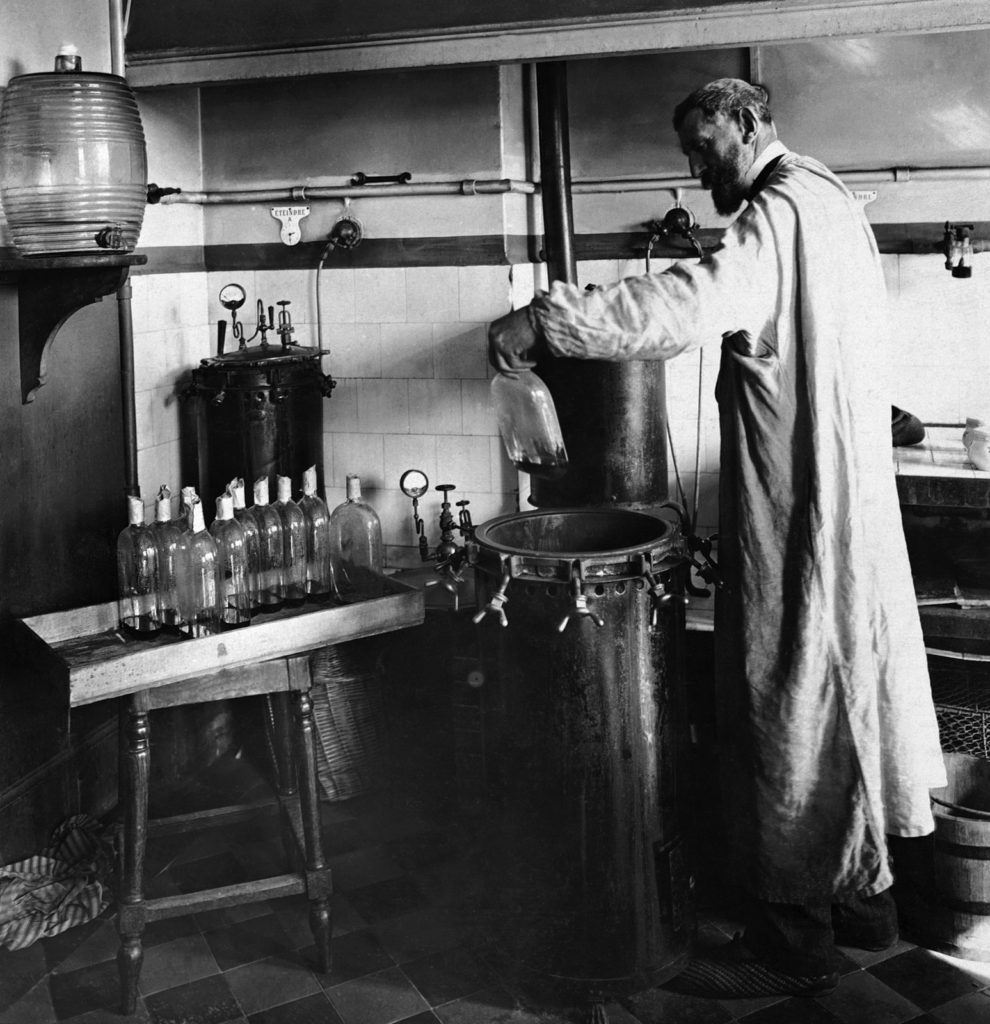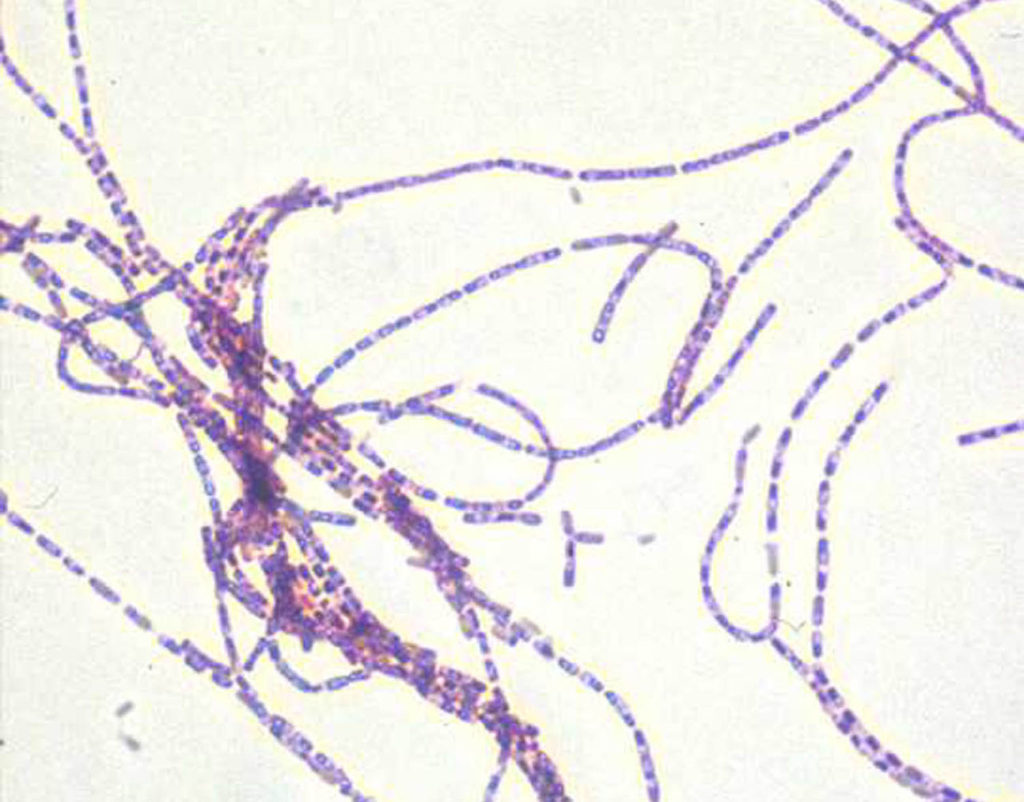The Germ Theory of Disease seems like common knowledge to just about everybody today, but this has not always been the case. Throughout most of history the causes of disease, the breakdown of the normal functioning of the human body – have been a mystery. This is not to say that a lack of ideas have existed.
A Brief History of Disease Theory
Early medical practices were awash in trial and error methods and a mix of science and superstition. One popular belief developed by the ancient Greeks and believed throughout the Middle Ages was known as humorism. Humorism states that the body contained four humors which were linked to the four major bodily fluids plus the four elements. An imbalance in humors was believed to cause disease. Cures revolved around restoring this balance.

(Credit: Tom Lemmens)
Religious and supernatural forces were also strongly believed to be tied to disease. Divine retribution may cause individual sickness or a demonic force would cause epidemics. However by the time of the Industrial Revolution the leading theory on disease was that bad air or “miasma” was believed to spread contagious diseases. This miasma would emit from rotting, dead organic matter to cause plagues, cholera, and various other diseases. People were instructed to avoid things such as decaying vegetation, corpses, and manure.
The invention of the microscope altered the landscape of medical science. Bacteria and viruses were discovered which led to a speculation of a germ theory of disease for centuries. In the mid-19th century The Hungarian physician Ignaz Semmelweis noticed that Puerperal Fever could be drastically reduced simply by washing hands. Various publications reported that the mortality rate could be reduced to around 2% from the mid-20s. Curiously, these were completely ignored by the medical community. It is for this we get the metaphor Semmelweis reflex – the tendency to reject new knowledge because it contradicts established norms.
The Triumph of the Germ Theory of Disease
Beginning in the 1860s, the work of Louis Pasteur finally proved the Germ Theory of Disease. Pasteur first began to study the validity of spontaneous generation, the popular idea that living things spontaneously emerge from nonliving matter. He conducted several clever experiments showing that microorganisms cause fermentation. In one experiment he showed that fermentation would not take place in a solution sterilized by heat. He correctly attributed this result to the absence of living microorganisms in the sterilized solution. Through a variety of experiments in fermentation he was able to prove that specific microbes can bring about specific chemical changes.

Having gained some notoriety for his work on fermentation, in 1865 the French government asked Pasteur to study two diseases of silkworms that were devastating the French silk industry. He accepted the task, discovered again that microorganisms were the culprits, and saved the French silk industry. These experiments, along with his other work, proved that all living things must have parents.

(Credit: U.S. Army Medical Research Institute of Infectious Diseases)
A decade later Pasteur began to study anthrax. His work with anthrax and anthrax immunization proved to everyone once and for all the validity of the Germ Theory of Disease. In 1881 at a farm southeast of Paris, Pasteur conducted a public experiment to demonstrate his anthrax vaccine. He inoculated twenty-five sheep with weakened anthrax microbes. Two weeks later he injected those sheep and others with active anthrax. All twenty-five inoculated sheep survived, the rest all perished.
Along with Pasteur, Robert Koch is also recognized as having contributed to placing the Germ Theory on sound, scientific footing. He developed four basic criteria known as the Koch postulates that establish a cause and effect relationship between a microbe and a disease. It should be noted that viruses were later identified and cannot be cultured, so his postulates do not apply to them. Koch’s postulates are:
- The microbe must be found in the diseased animal, but not the healthy animal
- The microbe must be isolated in the diseased animal and grown in a pure culture
- When the cultured microbe is introduced to a healthy animal, the animal develops the disease
- The microbe must be re-isolated from the experimentally infected animal
An Immediate Impact to Health
The Germ Theory of Disease allowed us to discover exactly what cause certain diseases. Once the method was accepted and understood it quickly led to the identification of many specific, disease-causing microorganisms. This led to vaccinations and cures to many of the diseases. Also steps could be taken to prevent diseases too. Personal and hospital hygiene was improved with the aim at reducing the transfer of microbes from one source to another. As a result, life expectancy quickly began to rise at a rate unseen in human history. This is the power of science.
Continue reading more about the exciting history of science!
This is interesting read and I learned a lot 🙂
Laura
https://pinkfrenzymissl.blogspot.com/
Hm, that’s really interesting. I didn’t really know enough about the topic, so thanks for that!
I’m so glad that we have come so far. I would not want to be treated by a doctor who thinks a disease is caused by religious or supernatural forces.
Science is amazing! The advances made in medicine are always so interesting to see the path. From the belief that there’s an imbalance to discovering sterile environments. Especially with the limited technology available at that time.
This is an interesting piece. There is so much that I can ponder over here. Science is so awesome. You stated many things that made me think. For instance, the evolution of disease and its theory. I’m thankful that medicine continues to progress.
Wow I’ve never heard about Germ Theory of Disease but I’ve learned to this post today 🙂
Very interesting information about the advances of medicine thanks to technology.cI didn’t know that the Germ Theory of Disease allowed us to discover exactly what cause certain diseases.
The Germ Theory of Disease is certainly a very interesting topic to delve into. I’m always interested in learning more about medical history. I find it so fascinating.
Fascinating read! Do you follow Dr Lindsey Fitzharris? She shares some very interesting medical history that I am sure you would enjoy
Well I’m so glad to hear that we have advanced beyond thinking sickness or disease is due to religious Or supernatural forces. My goodness
I am so glad there has been significant scientific advancement in the identification and treatment of disease. Heres to hoping that continues and we can cure everything!
It was a pretty amazing scientific discovery to know how diseases worked and spread. It’s so great they were able to understand the natural world and that it had order to it.
Ah yes! This post really tickled my inner nerd! I love that you’re spreading awareness about such an important topic!
Very interesting post about scientific discovery and medicines.
Loved reading it.
Wow, I would love to explore this concept in great detail. Gives me fun and exciting vibes! Lavern Moore
So much to learn from them as they are one of the living organisms that lived earth that we might have been taking for ranted for
Science is amazing. There are some fabulous inventions made which amaze me. Liked your article.
such an informative article, learned a lot of that I will certainly need, thank you for sharing :))
this article is full of information that I really needed 👍🏻 this is worth sharing for other to see
I agree, science is amazing and fascinating. Even my son thinks so, and now has an inclination for anything related to experiments.
Super interesting. I’m a germaphobe but it helps to understand how diseases spread.
Amazing article.. I love science so much.. It’s nice to learn more how things occurred like disease and how they spread.
It is amazing to see how far human beings have come not just in technology but in understanding and knowledge as well.
You cannot treat what you don’t know. So it’s actually great to learn on the theory and origin of diseases. Science is really doing it!
The Germ Theory of Disease is really interesting and you’ve done a great job explaining more about it here. Thanks.
I’ve learned so much in this post..! Good thing I always wash my hands. I always believed that having it dirty for a long time may cause disease.
I always appreciated science but never got the chance to really study it. This is such an informative article a unique topic I’d never even heard of!
This is a cool and interesting piece, I’m definitely glad that the world has evolved from the Humorism theory. This post was extremely informative and I’ve learned a great deal by reading it.
It’s so wild that so many people resisted the theory that germs existed at first. We’ve gone so far in science!
Very interesting info. I have learned new things from this. Science is really fascinating.
I would not want to be treated by a doctor who thinks a disease is caused by religious or supernatural forces.
Wow! We take the knowledge of disease causing germs so easily these days, its difficult to realise there could have been resistance to this theory. Great informative post
This was an interesting read. I love science and how it is continuously evolving and changing even though the fundamentals are still there.